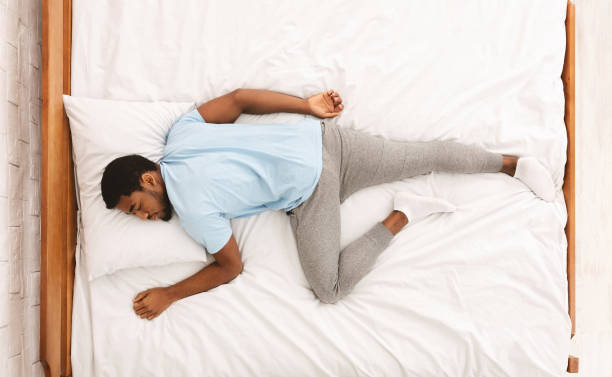
7 Sleep Habits Stopping You From Losing Weight
If you’ve been losing sleep at night worrying about why you can’t seem to lose weight, you may very well be sleeping with the enemy: bad bedtime habits. It’s a common problem. The good news is there are some tips that can help you boost your weight loss results.
We tapped our friends at BlackDoctor.org for some tips and ehre is what they revealed in a recent post.
Research shows that sleep plays an important role in weight management. People who get adequate sleep have lower BMI indexes than people who don’t. Findings also suggest that not getting enough sleep can cause weight gain.
“When you have poor sleep or lack of rest, you’re setting a whole cascade of events in motion hormonally that could set you up for weight gain,” John M. Jakicic, director of the Physical Activity and Weight Management Research Center at the University of Pittsburgh says.
When hormones like serotonin, dopamine, and melatonin are thrown out of balance, these can affect your sleep, mood, and food cravings.
Sleep tight and wake up right by correcting these common weight-gaining sleep habits.
1. Sleeping with lights on

Hopefully, you don’t still need a nightlight. Findings from a recent study published in the “American Journal of Epidemiology” show that exposure to even a small amount of light not only affects the quality of rest but can also put on extra pounds. Cortisol, “the stress hormone,” has also been shown to be abnormally high when you’re exposed to light.
The fix: When it’s time for “lights out”, really make sure all the lights are out. Close the blinds, use dark drapes, turn your alarm clock away from your line of sight, and put your cell phone and other electronics at least three feet away. You can also spray your pillow with a relaxing mist.
2. Sleeping on your stomach

If we had to rank sleeping positions, lying on your stomach might be at the bottom of the list. While it’s a good position for snoring or sleep apnea, the benefits don’t extend much further.
Unfortunately, sleeping on your stomach can cause both neck and back pain. It’s also been shown to be one of the positions that can cause the most weight gain because of its after-effects. It can also add a lot of unnecessary strain to your muscles and joints, which is why you might be waking up sore and tired. Here is a U-shape side sleeping pillow that is popular.
The fix: Placing a pillow under your lower belly might help reduce back pain.
3. Keeping your bedroom too warm

People who always have to sleep with a window cracked or a fan on (no matter the season) might actually be on to something. The body naturally cools down while you rest, releasing fat-burning hormones and repairing your skin, bones, and muscles. Having your room too warm can disrupt this process.
The fix? Sleep in a room comfortably below 70 degrees Fahrenheit.
4. Eating right before bedtime

That very important cool-down process can also be disrupted by eating late-night meals and snacks.
The fix: Have your last meal no later than three hours before your bedtime.
5. Late night exercise

Regular exercise is extremely important for weight loss and maintenance, but high-impact exercise – like cardio – raises your body temperature, prevents the release of hormones, and makes it harder for you to fall asleep.
The fix: Skip late-night cardio and do light stretching, like yoga, instead.
6. Sleeping in clothes

Pajamas are cute and comfy, but if you want to sleep better, ditch them. Tight or form-fitting clothing, including underwear and bras, can raise your body temperature and have been shown to reduce the secretion of melatonin.
The fix: Sleep naked and under light blankets. If you absolutely must wear clothes, keep them loose and breathable.
7. Not getting enough sleep

Having a bedtime isn’t just for children. Every person’s body is different, but on average, sleep experts agree that seven to eight hours of sleep is ideal. Try this mesh spa bath pillow. A lack of sleep increases cortisol, hunger hormones, and decreases growth hormone, serotonin, and leptin – all increasing the risk of weight gain.

